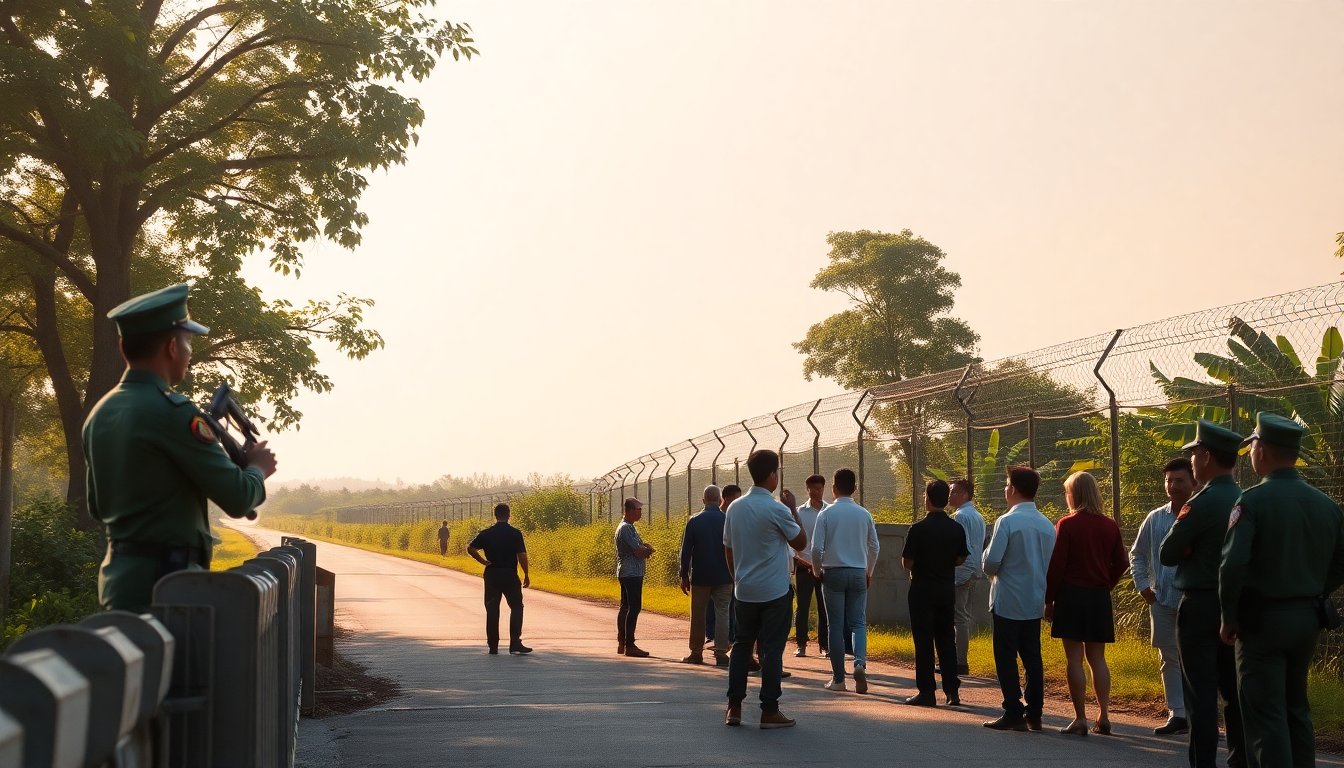Table of Contents
In an effort to address the ongoing tensions at its border with Cambodia, Thailand’s Prime Minister Anutin Charnvirakul announced the government’s plan to conduct a referendum. This public vote aims to assess whether to revoke two key agreements that outline the demarcation of the shared border between the two nations. This decision arises in the context of historical disputes and recent violent confrontations that have brought territorial sovereignty back into focus.
For decades, the relationship between Thailand and Cambodia has been marked by disputes over their 817-kilometer land border. These conflicts have often revolved around several undemarcated areas, resulting in increased tensions and sporadic military clashes. The latest escalation occurred in July, leading to a five-day conflict that resulted in at least 48 fatalities and forced thousands to evacuate their homes.
Historical context of the agreements
The two agreements under examination were established to provide a framework for resolving border issues. The first agreement, signed in 2000, aimed to facilitate joint surveys and the demarcation of the land boundary. The second agreement, which took effect in 2001, focused on cooperation in maritime areas claimed by both countries, potentially allowing for resource sharing.
Public sentiment and scrutiny
In the last decade, these agreements have encountered increasing public scrutiny, particularly following recent clashes between the nations. Critics contend that these treaties have failed to adequately address territorial disputes, leaving critical areas undefined. A ceasefire, brokered in Malaysia on July 28, temporarily halted hostilities but did little to resolve the underlying tensions.
Experts caution that the proposal to revoke these treaties may create a political vacuum that could exacerbate rather than alleviate tensions. The absence of a governing framework for the border could lead to further misunderstandings and conflicts between the two nations. Furthermore, the suggestion of a referendum raises questions about how such a public vote could shape future diplomatic relations.
Implications of the referendum
If the referendum proceeds, it is likely to serve as a litmus test for national sentiment regarding the ongoing border disputes. A public vote could reflect the populace’s frustrations and aspirations, potentially influencing the government’s future diplomatic strategies. However, the outcomes remain unpredictable, and both governments will need to consider the potential repercussions of such a decision.
Expert opinions on potential outcomes
Political analysts caution that revoking existing agreements may escalate border conflicts. In the absence of mutually established frameworks for communication and cooperation, both nations risk misunderstandings that could rapidly devolve into violence. As tensions escalate, the importance of dialogue and peaceful resolution becomes increasingly urgent.
Additionally, a referendum may polarize public opinion, fostering heightened nationalism that complicates diplomatic negotiations. Historical conflicts between the two nations indicate that perceived threats to sovereignty often trigger strong emotional reactions among citizens on both sides.
Considerations for future dialogue
As Thailand considers a significant move towards a potential referendum, the government must carefully evaluate the implications. While the goal of addressing disputes is commendable, the consequences of revoking existing agreements are serious. In this complex situation, both Thailand and Cambodia should prioritize dialogue and cooperation to ensure lasting peace along their shared border.


